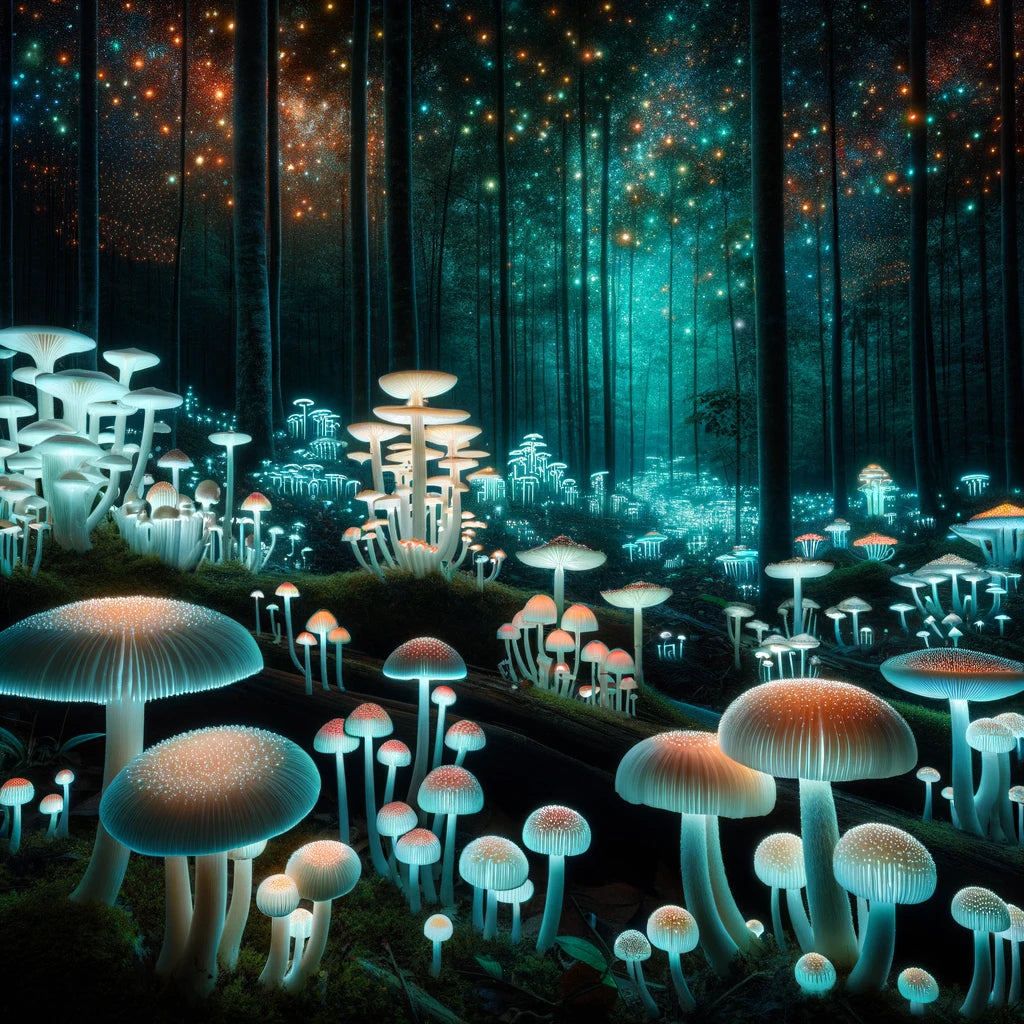
Exploring the Magical Properties of Mushrooms and Fungi: From Psychedelic Experiences to Neuroregeneration and Medicinal Breakthroughs
Share
The Enchanting World of Mushrooms and Fungi: Beyond the Ordinary
In the vast and intricate tapestry of nature, mushrooms and fungi stand out as entities of wonder, carrying with them a touch of the mystical and the miraculous. Far from being just a culinary delight, these organisms possess properties that seem to border on the magical, offering a range of benefits from psychedelic experiences to groundbreaking medicinal applications. Let's delve into the enchanting world of mushrooms and fungi, exploring their unique abilities and contributions to science and well-being.
The Psychedelic Journey: Magic Mushrooms
Among the myriad species of fungi, Psilocybin mushrooms, commonly known as magic mushrooms, hold a special place in human culture and medicine. These mushrooms induce psychedelic experiences characterized by visual and auditory hallucinations, profound changes in perception, and often, deep introspective insights that have been described by many as life-altering. The active compound, psilocybin, is currently under research for its potential to treat depression, PTSD, and addiction, offering hope for mental health treatments that veer away from traditional pharmaceuticals.
A Beacon of Healing: Penicillin and Beyond
On the more conventional side of medicine, fungi gave us one of the first antibiotics: Penicillin. Discovered by Alexander Fleming in 1928, penicillin comes from the Penicillium fungi and has saved countless lives by treating bacterial infections. This discovery marked the dawn of the antibiotic era, revolutionizing medical treatment and setting the stage for the development of more antimicrobial agents derived from fungi.
The Neuroregenerative Marvel: Lion's Mane Mushroom
Lion's Mane Mushroom (Hericium erinaceus) is a non-psychedelic fungus known for its potential neuroregenerative properties. Unlike its psychedelic counterparts, Lion's Mane offers cognitive benefits without the hallucinogenic experience. Research suggests that it may stimulate the production of nerve growth factors, aiding in the prevention of neurological diseases such as Alzheimer's and Parkinson's. Its compounds have been linked to improved memory, focus, and overall brain health, making it a subject of intense interest among scientists and health enthusiasts alike.
The Fungal Frontier: A Source of Innovation
Beyond these well-known examples, the fungal kingdom is replete with species offering unique and beneficial properties. For instance, the Cordyceps fungus is renowned in traditional Chinese medicine for its energy-boosting and immune-enhancing abilities. Meanwhile, the Trichoderma reesei fungus has been pivotal in the production of cellulases, enzymes crucial for converting cellulose into glucose, thereby playing a significant role in the development of sustainable biofuels.
Conclusion: Embracing the Magic Within
The seemingly magical properties of mushrooms and fungi are a testament to nature's ingenuity and serve as a reminder of the untapped potential lying within the natural world. From the psychedelic journeys facilitated by magic mushrooms to the groundbreaking medical applications of penicillin and the neuroregenerative promise of Lion's Mane, fungi offer a wealth of benefits that science is only beginning to understand and appreciate. As we continue to explore these remarkable organisms, we may find that the line between magic and science is not just blurred but beautifully intertwined, revealing a world of possibilities that can enhance our health, expand our consciousness, and inspire our wonder.
